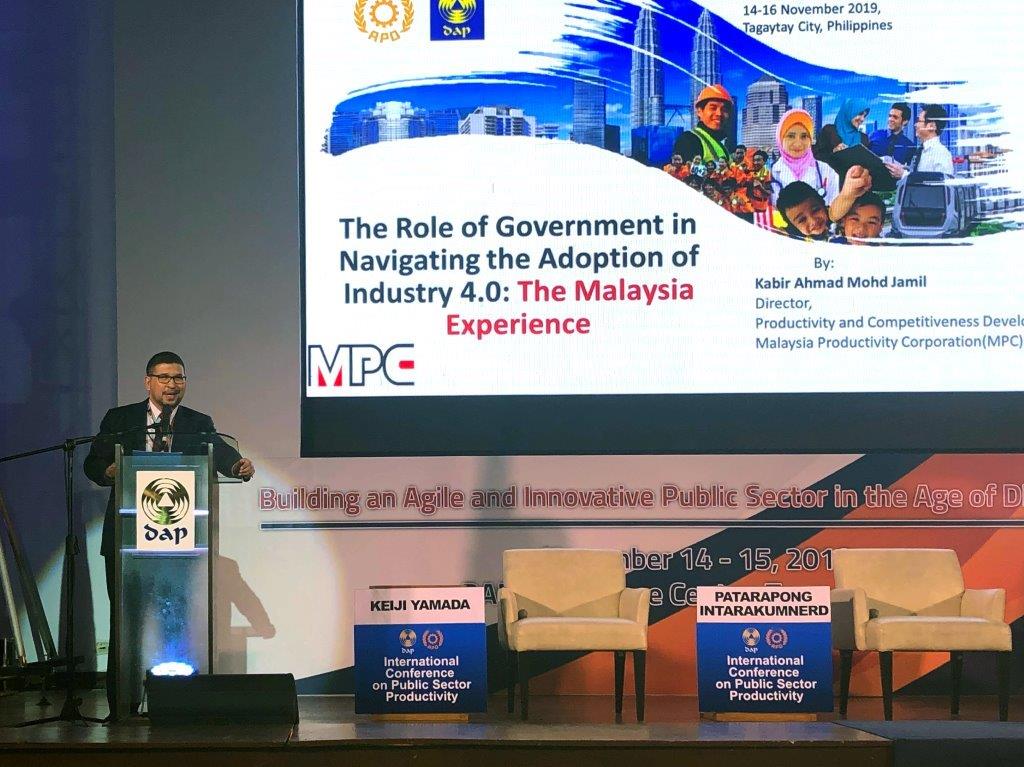
Select Page

From health, education, and welfare to agriculture, commerce, and public safety, there is scarcely a single facet of daily life not affected by public-sector policies and regulations. With changing demographics, new technologies, environmental concerns centering around climate change, and shifts in international relations, governments are acutely aware of the need to become more agile in meeting current citizens’ high expectations while preparing for an uncertain future. This is where innovation comes in. Governments worldwide are rethinking their internal processes, policy design and implementation, service delivery, and regulatory approaches to serve citizens as effectively as possible with limited public resources.
The Asian Productivity Organization (APO) continues to seek new ways to help governments in member countries to reinvent themselves, particularly under the Center of Excellence on Public-sector Productivity (PSP) established in 2015 within the Development Academy of the Philippines (DAP). In cooperation with the DAP, the third APO International Conference on Public-sector Productivity was held 14–16 November 2019 in Tagaytay City. The theme was Building Agile and Innovative Public Sectors in the Age of Disruption, which was examined from multiple perspectives in the presentations by resource persons from Australia, France, Japan, Malaysia, the ROK, and USA as well as in discussions among the 22 delegates from 14 APO members and some 140 local participants.
In remarks to open the conference, APO Secretary-General Dr. AKP Mochtan first explained the concept of “the centrality of productivity,” and the need to put it at center stage in all socioeconomic development endeavors. After listing the numerous APO efforts specifically focused on PSP, he stated, “Our challenge is to find better ways of working, policies, and processes to enhance public well-being. In the long run, we must make the public sector itself the catalyst for sustained innovation.” Applications and results of innovation in the public sector, their implications for its productivity and national competitiveness, digital transformation, the future of work, and process improvement measures were topics of universal interest and debate during the conference.
The timeliness and relevance of the conference and its theme were reflected in the feedback from those attending. Resource person Prof. M. Jae Moon, of Yonsei University, the ROK, referred to the event as “superb” and “a great opportunity not only for assessing the current state of PSP but also for enhancing the understanding of disruptive technologies and their impacts on public organizations.” Participant Nguyen Phuong Mai, Vietnam, was inspired by the realization that, while it was sometimes difficult to know how public-sector units should respond to the rapid disruptions of Industry 4.0, “We don’t need to start from the big things but small changes can make big differences, as Professor Kim Jae Moon said.”
Indian participant Bhupesh Chandiola found that, “The idea to have participants from various nations was excellent, which enabled knowledge sharing” and was sure that it would “contribute to increasing organizational productivity.” That belief was echoed by OECD-assigned resource person Dr. Sean Dougherty, who stated, “We discussed policy and institutional reforms that could be tried by policymakers, and how the private sector can help reinforce productive change.”
Because of wide-ranging scope of the public sector and diverse topics addressed during the third International Conference on Public-sector Productivity, Program Officer Dr. Jose Elvinia, Industry Department, APO Secretariat, prepared a synthesis document for easy reference. That summary noted the support of the Philippine government for the conference, as represented by the presence of Civil Service Chairperson Alicia Bala, and congratulated the DAP under the leadership of Atty. Engelbert C. Caronan, Jr. and his team for its superb organization. Appreciation was expressed to APO Director for the Philippines and Undersecretary Dr. Adoracion Navarro for sharing her thoughts on the conference theme during the inaugural session. All the speakers who shared their knowledge and experience were thanked, especially since, “They did not simply explain their areas of expertise but put a human face on how their organizations function.”
Conference recommendations that delegates could put into practice were distilled into: “You are all at the heart of innovation. Since innovation correlates with productivity, a low level of productivity within the public sector also undermines its growth potential and puts the provision of public services at risk. This means that radical improvement is required which can only be achieved by rethinking, redesigning, and reengineering processes and procedures as well as services and systems of the public sector.”
As additional inspiration to tackle the challenges of PSP innovations through greater agility, Dr. Elvinia’s summary concluded with a quote from Socrates: “The secret of change is to focus all of your energy, not on fighting the old, but on building the new.”